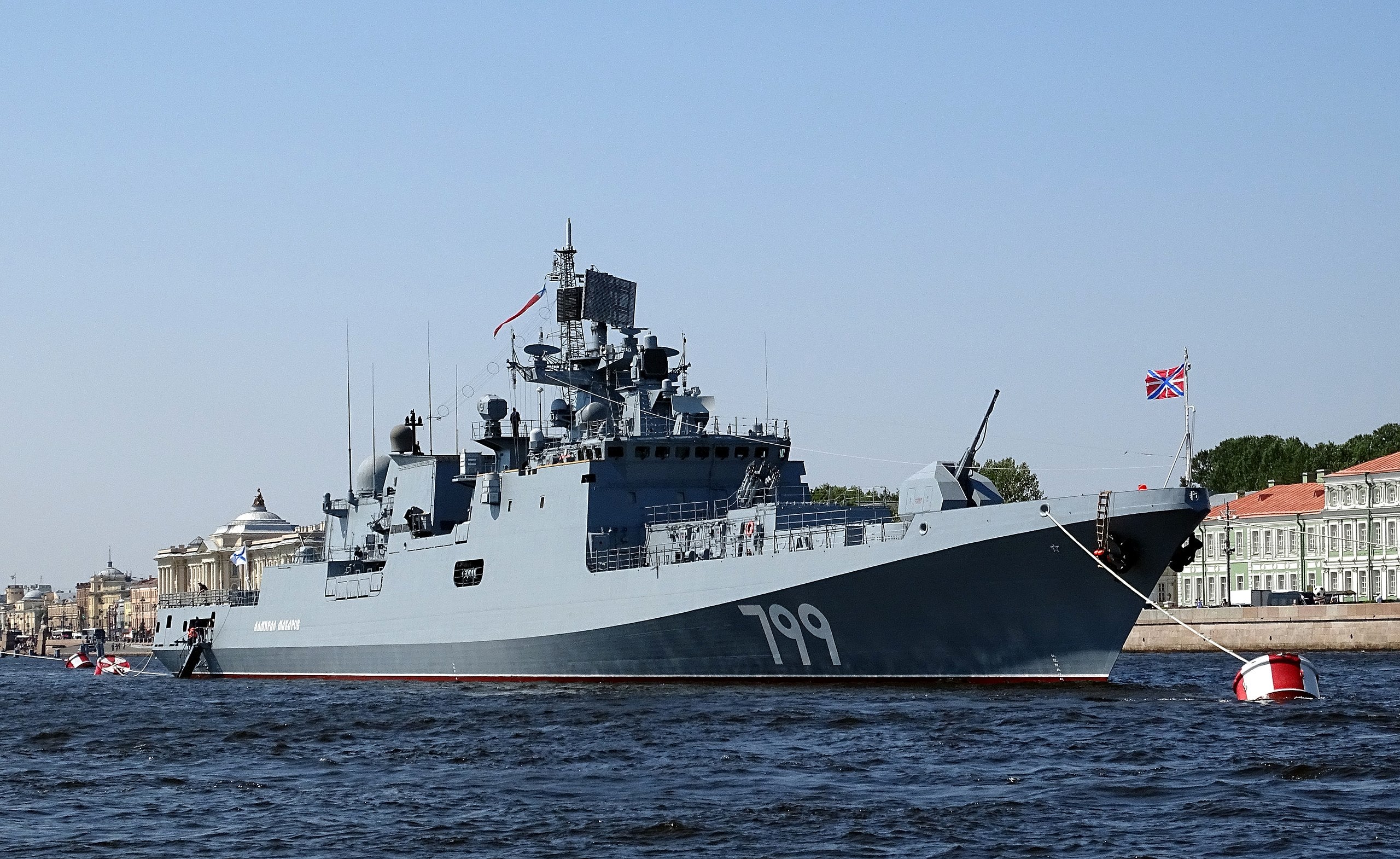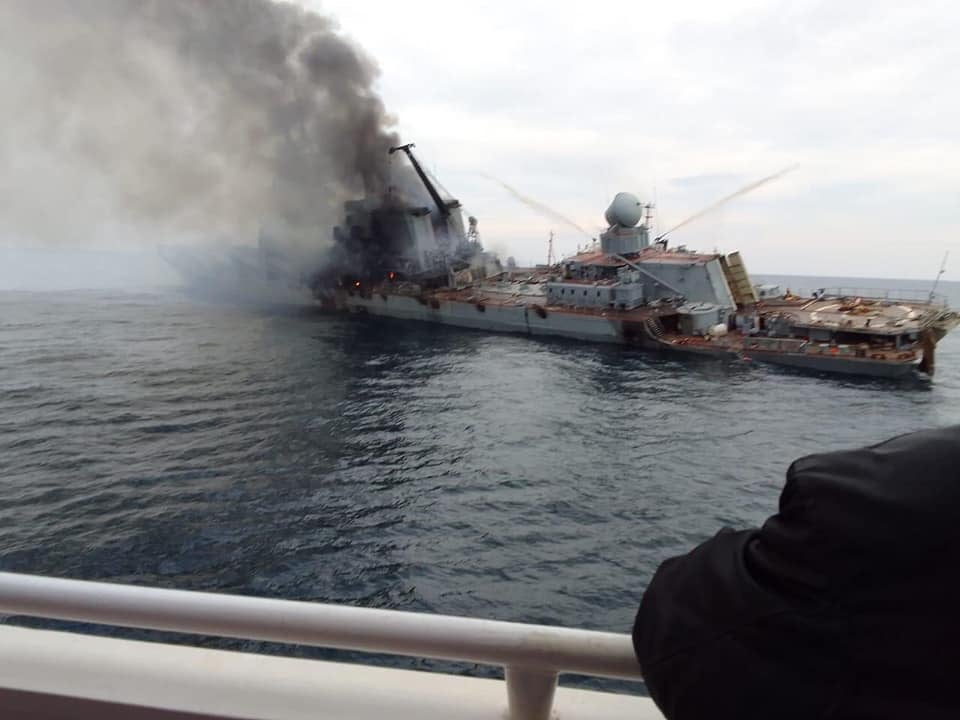
Russia’s Admiral Makarov warship has been hit by Ukrainian missiles and burst into flames, according to Ukrainian officials.
The frigate would be Russia’s latest high-profile naval loss in a troubled campaign, coming after reports that US intelligence helped Ukraine locate and sink the Russian warship Moskva weeks ago.
The Makarov was said to have been sailing close to Snake Island in the Black Sea south of Odesa.
Ukrainian presidential adviser Anton Gerashchenko reported on his Telegram page that the Admiral Makarov was hit by a Ukrainian Neptune anti-ship missile. He cited Russian sources.
Russian navy ships stationed in Crimea were sent to help Admiral Makarov, he added.
Dumskaya, a Ukrainian-state news website, said Russian forces had sent helicopters to rescue the crew of the ship, said to be 180-strong.
Admiral Makarov is a modern frigate loaded with guided missiles, according to the World Directory of Modern Warships. If lost, Russia’s frigate fleet will be down to 10.

The Russian Ministry of Defence has not commented on the reports.
Russia last month lost its Black Sea flagship Moskva in a Ukrainian cruise missile attack. On Thursday, a US official said Washington helped Ukraine to locate the warship.
Britain’s Ministry of Defence (MoD) said there were around 20 Russian navy vessels in the Black Sea after the sinking of Moskva.
Though Russia was unable to replace Moskva as the Bosphorus strait was closed to military ships, the Black Sea fleet retained the ability to strike Ukrainian targets, the MoD said.

It was unclear what effect the sinking of Admiral Makarov would have on Russian operations in the Black Sea.
Russia has blockaded Ukrainian ports on the sea’s coast to stop exports throughout the war.
Since Moscow launched what it calls a “special military operation” in late February, Ukraine has been forced to export grain by train over is western border or from its small Danube river ports rather than by sea.
The UN said on Friday that nearly 25 million tonnes of grain were stuck in Ukraine due to the war, driving global food prices to a record high last month.







